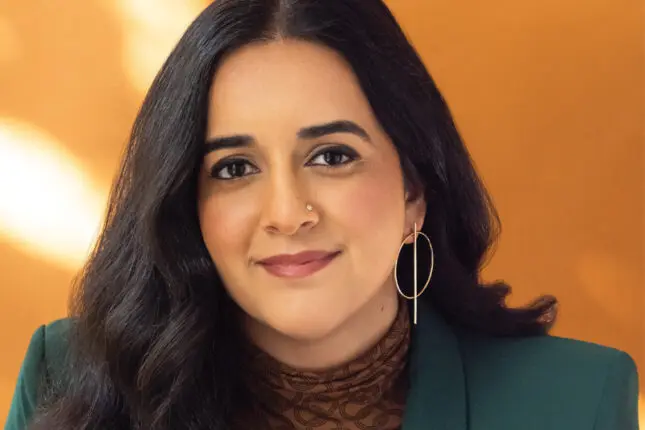One key thing I did to enhance my “brand” as a therapist was share my own story publicly.
I’ll be honest—this wasn’t an easy thing to do, nor was it supported by all my colleagues. As therapists, we’re trained to hold space for others, to listen, to be safe and nonjudgmental. The unspoken rule is that we should maintain a bit of mystery about who we are and what we’ve gone through.
Before becoming a therapist, I’d worked in media/journalism, so writing about myself didn’t feel particularly difficult. However, I was told early in my graduate program by an older professor to delete everything I’d written online about myself and even forgo building Brown Girl Therapy, the first and largest mental health community for adult children of immigrants (now at a quarter of a million people!), which was born of my early struggles as a child of immigrants.
Early in my counseling career, I was faced with difficult questions: What if being honest makes me seem unprofessional? What if I’m not allowed to be a therapist and share my story?
Thankfully, I had professors and mentors who supported my work and believed in what I was doing. After all, I’m a community member first, who identifies as bicultural, who’s navigating many firsts in my immigrant family, and who’s been in therapy on and off for a decade and takes antianxiety medication.
As a narrative therapist, I firmly believe that storytelling shapes the way people make sense of their lives. We all have a story we tell ourselves about who we are, where we’ve been, and where we’re going. But I’ve also realized something else: the stories we don’t tell, the parts we hide or skip over, often hold the key to our healing.
My vulnerability is what’s created connection in the enormous online community I’ve built, one that’s a bridge for so many of us who’ve been left in the margins when it comes to mental health care. When I shared my story, beyond the confines of an individual therapist’s office, it became a conversation and a shared experience between lonely humans who didn’t see themselves—or their experiences—represented in the culture at large.
Since then, I’ve continued to be open about my mental health journey, most recently in my book, But What Will People Say?. Turns out, the parts of myself I thought were too raw or messy to share were what resonated the most with others. And far from being a hindrance to building my career, it’s made me a more authentic, relatable, and effective therapist.
For me, success hasn’t been about “branding,” but about showing up honestly and truthfully, and meeting the community—my community—where they are. The process has been humbling. I’m not the expert of other people’s lives, but by being more forthcoming about my own experiences, I’m able to help others live a little more well.
Sahaj Kaur Kohli
Sahaj Kaur Kohli, MAEd, LGPC, NCC, is a practicing therapist, international speaker, and the founder of Brown Girl Therapy (@browngirltherapy), the first and largest mental health and wellness community organization for adult children of immigrants. She’s the author of But What Will People Say?: Navigating Mental Health, Identity, Love, and Family Between Cultures and a columnist for The Washington Post’s advice column Ask Sahaj. Her work has been featured in Today, Good Morning America, CNN, the New York Times, and HuffPost.












